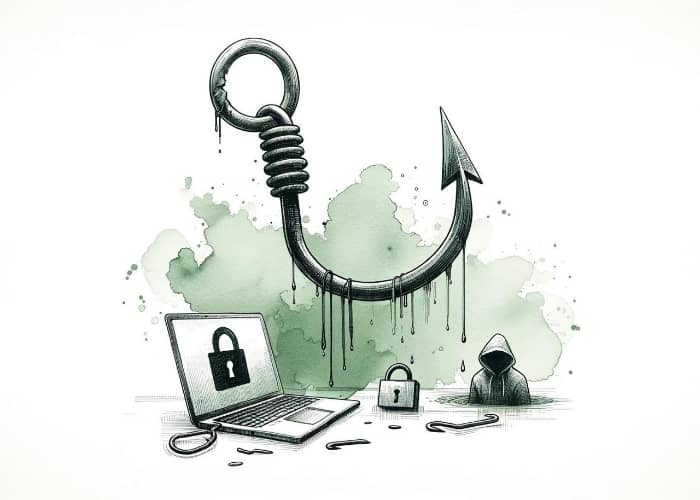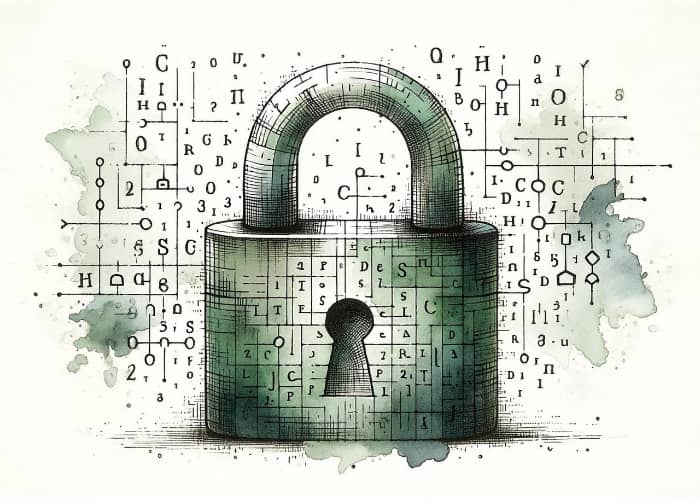In the digital world (permit a poetic thought) information floats like leaves in a river. In truth, they look more like a flood caused by clogged drains: and what can we use to stem this flood that risks taking us, our data, and sometimes even our money? That's right: encryption. A king's luxury, once reserved only for military empires and spies, today available to almost everyone. From simple everyday transactions to emails, encryption protects our privacy and security. But will it always be like this? In the meantime, let's take a look behind us.
From Spartan codes to modern cryptography: a constant evolution

The history of cryptography is full of twists and innovations. Starting from the Spartans with their scytala. What it was? A stick around which a strip of papyrus was wrapped to reveal a message. Not exactly impenetrable system, right? Since then, however, this discipline has spanned the centuries. In the Middle Ages, ciphers replaced letters to hide messages, while during World War II, machines like the famous Enigma showed the potential of mechanical cryptographic systems. There is this ExpressVPN article on the history of encryption who can tell you better than me. Today, we rely on digital encryption, which uses complex mathematical algorithms to protect our data. And thank goodness, considering the context.
Global threats, global responses

We live in an era where internet connection has become an inescapable constant, making encryption an essential component of our digital security. Its importance grows alongside the escalation of cyber threats, which continually evolve in complexity and sophistication. Attacks like i ransomware, which encrypt victims' data by demanding a ransom for recovery, and attacks Phishing, which trick users into stealing confidential information, are just the tip of the iceberg. If you think that the problem is that fake electricity bill that someone wants to extort from you, you are wrong. There are billions at stake here.
Do you want my top 3 worst cyber attacks?
- WannaCry Ransomware Attack (2017): WannaCry was a global ransomware attack that affected more than 200.000 computers in 150 countries. This malware exploited a vulnerability in Windows systems, encrypting users' files and demanding a ransom in Bitcoin to unlock them. Among the most notable victims were the National Health Service (NHS) in the United Kingdom, FedEx, and several large companies and government institutions. The attack caused disruptions to essential services and economic damage estimated in billions of dollars.
- NotPetya (2017): Nearly contemporary to WannaCry, NotPetya was initially perceived as another ransomware attack, but turned out to be something more insidious. Despite presenting itself as ransomware, NotPetya's real goal was to destroy data. Originated in Ukraine, it quickly spread globally, hitting large companies like Maersk, Merck, and TNT Express, causing more than $10 billion in damage. NotPetya is considered one of the most destructive cyber attacks in history.
- Sony Pictures Hack (2014): This attack targeted Sony Pictures Entertainment, resulting in the disclosure of confidential data, including personal information on employees and actors, internal emails, copies of unreleased films, and other sensitive data. The attack was blamed on North Korea, allegedly in response to the film “The Interview,” a comedy that targeted North Korean leader Kim Jong-un. The consequences were severe for Sony, both in terms of financial damage and reputation.
And it will get worse and worse! For this reason, cryptography will have to keep up and keep up. As?
Cryptography in the Quantum Age

The future of cryptography is challenged byevolution of quantum computers, capable of processing information at a speed unimaginable for current systems. This technological advance could make current forms of encryption vulnerable. Fight fire with fire, right? This is why it was born post-quantum cryptography, a field of research dedicated to the development of encryption systems capable of resisting attacks from future quantum computers.
One of the most crucial fields in which this battle will be fought is that of digital signatures. Essential, or even more so, for the integrity of all our online documents. With post-quantum cryptography we will be able to ensure that our name as a guarantee of what we do remains secure even in the face of the advancement of quantum computing. And then the protection of financial data, or secure and non-hackable communication protocols, and a thousand other things. It almost makes you dizzy, could we go back to the stick and the papyrus? No, huh? No. Steady nerves, rather: and while waiting for increasingly better and even more reliable systems, let's follow a few rules to feel safer.
Tips for Browsing Safely
Without beating around the bush, know that in the great history of cryptography you too are called to make history. As? To avoid being fooled by a hacker, I thought we all agreed on this point. To navigate the sea of cyberspace safely, it is essential to adopt good digital security practices:
Strong and Varied Passwords: Use combinations of letters, numbers and symbols.
- Complexity: Choose passwords that include a mix of uppercase and lowercase letters, numbers, and special symbols.
- Uniqueness: Use a different password for each account to reduce the risk if one of them is breached.
- Length: Prefer passwords at least 12 characters long to increase complexity.
- Management: Consider using a password manager to keep track of multiple complex passwords securely.
Regular Updates: Keep software and operating systems up to date.
- Automation: Set up automatic updates where possible to ensure your software and operating systems are always up to date.
- Periodic checks: Manually check for updates for critical applications that may not update automatically.
- Firmware Security: Make sure the firmware of devices such as routers and security cameras are also kept up to date.
Be careful with links and attachments: Avoid opening links or attachments from unknown sources.
- Reliable Sources: Only open links and attachments from known and trusted senders.
- Check Antivirus: Use antivirus software to automatically scan attachments and downloads.
- Education: Educate yourself and others about the warning signs of phishing and online scams.
Use of VPNs: A reliable VPN can offer an additional layer of cryptographic security.
- Public Network Security: Use a VPN when accessing public Wi-Fi networks to prevent eavesdropping.
- Privacy Online: A VPN can help hide your IP address and encrypt your network traffic, increasing your online privacy.
- Careful Selection: Choose VPN providers with a strong privacy policy and no activity logs.
By following these guidelines, you can significantly reduce the risk of security breaches and effectively protect your personal and business information.
Cryptography last hope, in conclusion
In conclusion, encryption represents a fundamental bulwark in our daily fight against the pitfalls of cyberspace. As technology advances, it is necessary to not only understand the value of encryption, but also actively adopt security measures to protect our personal and professional data. Encryption is not just part of our past, but an essential key to our digital future.


